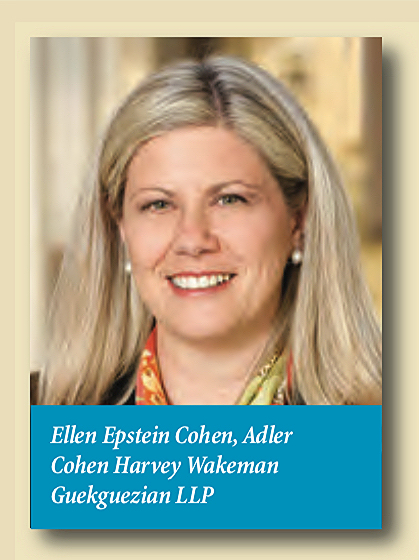As the country opens up in the wake of a COVID-19 pandemic that killed more than 600,000, the post-COVID legal environment continues to evolve. Not only were courts closed for months, but many jurisdictions enacted liability shield laws during a chaotic period in which the virus surged throughout the country.
For many, life is back to somewhat of a pre-COVID normal. For others, losses and change experienced during the pandemic means that life will never be the same. This is all occurring
in a world where COVID variants may evade vaccines and where a large minority of the population remains unvaccinated or at least not fully vaccinated.
This fluid situation is without precedent from a medical professional liability (MPL) standpoint.
Although relatively few COVID-19-related cases have been filed by the plaintiffs’ bar, that situation could change. There’s no way to predict the eventual court rulings regarding COVID-19 MPL cases and the various liability protection laws that have been enacted.
At the same time, the legal grounds upon which MPL cases are tried, the prevailing medical
standard of care, have been constantly changing, especially during the early part of the pandemic. “No matter what part of the country you’re in, every medical malpractice case starts with the question: What is the standard of care, and was that standard of care violated?” said Olga Kats-Chalfant, National Coordinator, COVID-19 claims, MedPro Group.
“Here, we don’t have a standard of care, because a standard presumes that there are norms
to be followed,” she continued. “Healthcare professionals were learning literally every day on the job. They were learning from each other. American physicians were learning from their Italian counterparts, because our surges followed surges in Italy. Essentially, we have two layers of uncertainty in this situation—the medicine overlaid with the law, which creates this matrix of anxiety for both defense attorneys and healthcare providers. There’s actually a third layer of ambiguity, which is whether or not a specific situation is even covered under a medical professional liability policy.”
It is in this fluid environment that the MPL community is attempting to make sense of the current
and near-term future legal environment. This includes a wide variety of situations ranging from how cases will be handled in courts that are just reopening to potential plaintiffs’ bar tactics to ways in which the defense bar can proactively collaborate.
Court processes in flux
Many courts were closed for months during the pandemic. When they reopened, many did so remotely. To what extent courts opened was highly dependent upon jurisdiction. Many courts that pivoted to remote hearings are now returning to in-person hearings.

However, whether depositions remain virtual or return in person depends on MPL carriers and the attorneys involved. Lee Livingston, a plaintiffs’ attorney and partner with Michie Hamlett in Charlottesville, Virginia, expressed hope that depositions continue on a remote basis.
“I’ve seen many a weary traveler come into a deposition and do a very feeble job deposing an out-of-state expert,” he said. “Many are coming off a hard trip. Post-pandemic, it’s not likely that traveling is going to get easier.
“As lawyers, it is easy to think that we are really going to bring the heat in person and make a big difference with an improvisational stroke of brilliance, but in my experience, that isn’t likely,” he continued. “I find that the benefits of being fresh and being able to listen carefully when working remotely, as well as the significant cost savings in travel, weigh heavily in favor of remote depositions.”
Many courts are resuming in-person trials. Depending on where those cases are tried, social distancing and masks are frequently part of the new normal. David Jones, a member with Hall & Evans Attorneys at Law in Denver, Colorado, participated in a trial in May 2021 in Larimer County where all participants other than testifying witnesses were masked, and social distancing prevailed. “When I try cases, I pay close attention to relating to witnesses
and jurors, and masking makes that difficult,” he said. “I can’t see the jurors’ facial expressions and they can’t see mine, which adds needed context, and that is frustrating.”
Overbooked legal system
Because criminal trials involve depriving defendants of their liberty if they are incarcerated, once
the courts began to reopen, civil cases took a back seat to the huge backlog of criminal cases. In some jurisdictions, this is resulting in double or triple booking of civil trials for future dates.
“In Massachusetts, this is creating a scheduling nightmare,” said Ellen Epstein Cohen, a principal with Adler Cohen Harvey Wakeman Guekguezian LLP in Boston. “We’re not just talking about delays; what I’m talking about are judges squeezing a year and a half of trials into
already full calendars. There’s no way to know which of the cases scheduled on any given day will actually go to trial.
“The malpractice defense bar is very elite, very small, and very select, so the question: Is who will try all these cases? Because we are all now so overbooked, it’s very likely that the
courts will say that other attorneys will need to step forward and try those cases,” she continued.
Another pressing issue in Massachusetts is the potential for cases to be tried with smaller
juries than in the past. The Massachusetts Supreme Judicial Court (SJS) has ruled civil cases
can go forward with six jurors instead of 12, regardless of whether the parties involved onsent.1
“This is an area where research is needed because we’re concerned about whether smaller juries will have an adverse impact on the defense,” said Cohen. “It’s an untested data point
and it’s an untested appellate issue. We believe that this option is being implemented by the Massachusetts SJC because it takes less time to seat a jury and also involves fewer individuals in the courtroom.”
Plaintiffs’ bar files test cases
Fortunately, there has not been the tsunami of MPL cases that many feared at the beginning of the pandemic. By mid-June 2021, some 400 cases had been filed in jurisdictions across the country, according to Kats-Chalfant. But that doesn’t mean that providers are in the clear. “I don’t know how organized or accidental this is, but there are a few firms, decent-sized plaintiffs’ firms around the country that have clearly signed up a ton of potential COVID-related cases,”
she said.

“These firms have filed a few test cases around the country,” she continued. “Their first goal is to tease out a defense strategy. They also want to see how the courts deal with these types of cases against different types of healthcare professionals.”
The target of most of the actions that have been filed are nursing homes, senior care facilities, and assisted living facilities. Kats-Chalfant referred to these facilities as “low-hanging fruit” for the plaintiffs’ bar because they received terrible press, had the highest percentage of deaths from COVID, and had so little protective equipment.
“If you take people who are already extremely susceptible to the disease, with pre-existing medical conditions and advanced age, often dementia that makes it impossible for them to follow instructions, put them in a congregate care setting, with authorities prioritizing personal
protective equipment away from these settings to acute care hospitals, and with providers who are forced to ration the little protective equipment they do have, you are going to have a high
rate of death,” she said. “Doesn’t matter how careful you are.”
In addition, like many entities, these facilities faced difficulties in accessing personal protective equipment and received conflicting guidance from local, state, and federal healthcare regulators. Differing laws and immunity standards as well as shifting standards of
care make it difficult to get a handle on how these cases might resolve.
Regardless of the type defendant in the COVID-19 liability cases that are likely to be initially tried, Peter Cridland, Vice President, Medical Professional Liability with TransRe, noted that there are some indications that plaintiffs’ counsel are positioning some of what they believe are their biggest and best COVID-related cases for trial as soon as possible. “We’ve heard that this strategy is designed to front-load potential mega-verdicts in the next six months or year,” he said. “If big cases are the first ones to go to trial and we see a rash of large verdicts, that may well inflate future verdicts for months or years to come.”
Demonstrate flexibility and adaptability
While many parts of the country return to normal, the MPL and legal environments are still taking shape post pandemic. In the absence of a crystal ball, remaining flexible and adaptable
to whatever circumstances arise will serve providers, insurers, and other MPL stakeholders
well.

How this adaptability plays out is highly dependent upon your position within the MPL
universe and your location. The climate and conditions that prevail in one area may be very
different from another. For Cohen, this means that insurers and healthcare professionals will need to be adaptable regarding the availability of their preferred attorneys to try their cases.
“We need buy-in and support and approval from insurers to allow more senior attorneys in our field to train the less-experienced attorneys in every single aspect of working up and trying the MPL cases that are emerging,” she said. “There simply aren’t enough of us and we must build the next generation of defense litigators.”
Cohen noted that no lawyer learns to try cases in law school—like any other skill, it is best learned in practice. “The time to start training other lawyers is now, because virtually all of the highly experienced litigators are being double- or triple-booked by the court system,” she continued. “We will have no choice but to train others to meet the demands of the dockets. Allowing younger lawyers to watch cases, try parts of or whole cases is the only way that we can successfully attack the backlog of cases we have.”
Closer collaboration within the defense bar is one approach that would be highly beneficial for all MPL stakeholders, Cridland said. “If there is one thing the MPL defense bar could learn from the plaintiffs’ bar, it is how they communicate. They have an amazing network involving sharing approaches and strategies because they know that a rising tide lifts all boats. I think that if we could get better at communicating and collaborating, we could take much better advantage of the remarkable brain trust we have on the insurance side, reinsurance side, and the defense attorney side.”
For Kats-Chalfant, adaptability from the carrier and defense attorney perspective means guiding healthcare providers through whatever storms arise. “Our job, in a changing environment, especially in an emergency situation or some sort of unexpected event, is to keep a clear head, keep cool, stay in control, and provide direction and support to our clients,” she said.
“As long as we remember our obligation to our insureds, our company values, our ethical obligation to our clients and insureds, I think we can come through pretty much anything,” she
continued.
References
1. “Some 12-Person Jury Trials to Resume in Massachusetts Next Month,”
WBUR.com, April 15, 2021, https://www.wbur.org/news/2021/04/15/12-personjury-
trials-massachusetts.
Disclaimer:
Peter Cridland’s views are his own, not the opinions of TransRe or its affiliates.
Pull Quote:
“In the absence of a crystal ball, remaining flexible and adaptable to whatever circumstances arise will serve providers, insurers, and other MPL stakeholders well.”